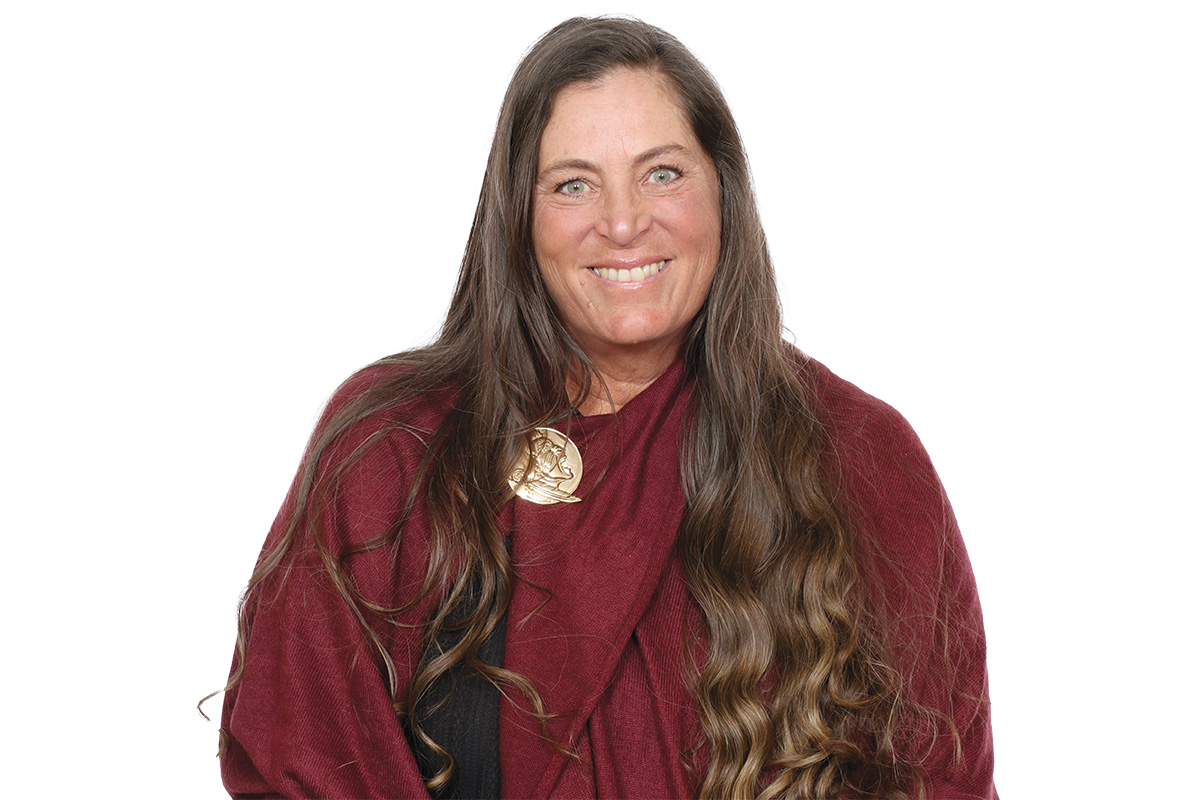Lonni Alameda, the head softball coach for Florida State University, was diagnosed with Stage 3 triple-negative breast cancer in late February just as her team’s 2025 season was getting underway.
The beloved coach’s diagnosis sent shock waves through team members, her support staff and the entire FSU athletic community. Alameda, 55, has been head coach of FSU’s softball team since 2009.
Despite the devastating news and the debilitating chemotherapy treatments, Alameda continued coaching and finished the season with an impressive record of 49 wins and only 12 losses.
During her busy summer recruiting throughout the country, while continuing chemotherapy treatments, she took time to describe for FLORIDA TREND her ordeal, and the physical and emotional journey brought on by the disease.
FLORIDA TREND: Prior to your breast cancer diagnosis, did you have regular breast cancer screenings and were there any early warnings that you had risk factors?
Alameda: Yes, I did attend my mammograms regularly. I later found out that I had dense tissue, and sometimes that requires a bit more attention, but again, you just need to know your personal situation.
FT: How long does it take you to recover from each session of chemotherapy and get back on the field coaching?
Alameda: It is not about “recovering” from chemo, because I think from what I am hearing, it may take up to a year after before I feel “normal” again. I may have side effects that stay with me for my lifetime like neuropathy or other areas that have been affected during my treatments. The most important part for all that go through this process of fighting cancer is to live as normal life as you can.

FT: Describe the support you have received from your team, assistant coaches and the FSU community as a whole. How has that strengthened your resolve to win this battle?
Alameda: The outpouring of support was overwhelming at first and truly inspiring to know how many people care about your well-being. You realize that cancer affects so many people and by being in the public eye I was able to hear so many success stories from people in the fight. As you get into the fight, you start to realize how more of the stories resonate with your personal journey. This sisterhood/brotherhood is a group of warriors, and their words matter because they have been in the journey. Then there are the supporters whose human kindness continues to bring a smile to your face because they genuinely believe in you and bring positive moments to your day; and that is needed even when you do not know it is needed.
FT: FSU women’s basketball coach Brooke Wyckoff is also battling breast cancer. Do you keep in touch with her and, if so, does the relationship and sharing of experiences help you cope with this challenge?
Alameda: Brooke was one of my first phone calls. She was the vision of how to manage this situation that I was given and I knew her words would help me tremendously. We do stay in touch with texts and of course when we run into one another on campus. She gets me and can understand what I am feeling. So, sometimes it is great to share with her where I am at in my journey, and her little congrats on little things are heartwarming.
FT: What have you learned about yourself in dealing with this health challenge?
Alameda: I have learned that you have to prioritize yourself, and that is hard for many people, I know. But for me, wanting to be there for the team at all times and give them the energy that they deserve was tough as I had to pull back at times. I have learned that my staff is a family. You can say it, but until you get in a situation where you just need to stay in your hotel room on a road trip and your game day prep goes on without a blip and no questions asked, you realize that you have great people around you that know what they are doing, know what you need and are getting after what the team needs.
FT: Beyond regular screenings and self-examinations, what advice do you want to share with women regarding detection and prevention of breast cancer and the mental and emotional challenges this disease presents?
Alameda: Advice is tough for me to share, honestly. I think there is wisdom from those that are on the other side of it, as I am still going through it. Knowing that you will have to take days and do nothing. I was told to “listen to your body,” and that becomes very evident some days when the fatigue of the drugs kick in, and you need to allow rest to be part of your day. For me, quiet time is huge to slow things down and just rest my mind — sounds silly but works for me.
FT: What has been your experience and assessment of Tallahassee Memorial HealthCare’s attending physicians, nurses and facilities?
Alameda: I have a personal relationship with TMH and their cancer unit due to numerous years of community service opportunities, so I feel at home there. TMH was the best to work with for me as they worked around our season schedule and now summer schedule. The nurses are beyond amazing and that goes for all nurses. I believe they care and make you feel so welcome and normal, and they love the softball team. And I always hear about how much fun they have supporting our games. The physicians are personable and caring — they want to make sure I can handle what is required to do with the chemo but also what is needed for my personal life too. I get so many texts daily to check on me and from that you get the feeling you are part of their family, and that is truly amazing.













